Odd Voices
An Anthology of Not So Normal Narrators
Genre: Short Story Anthology of diverse YA voices
with stories by
K.C. Finn, Kell Cowley, Eddie House,
Mary Ball Howkins, Tonia Markou, Jack Bumby,
A Rose, Colby Wren Fierek, Oceania Chee, Catherine Johnson
In every new story we pick up, we’re seeking an exciting original voice. So why are there still voices we
don’t hear from nearly enough? Why are there characters that so rarely take centre stage? In this
collection from Odd Voice Out press, we discover the stories of twelve teenagers who stand out from the
crowd and who’ll not easily be forgotten.
With settings that range from Scotland to Syria, Mexico to Mauritius, Africa to Russia, these stories take
us to all corners of the globe and into the lives of young people with their own unique circumstances and
perspectives. Characters dealing with issues of culture and class, exploring their sexuality and gender
identity, or letting us into their experiences with illness, disability or neurodiversity. Their tales span all
genres and can’t be reduced to labels. These are stories about bending the rules and breaking the law.
Stories of fighting for survival and finding your place in the world. Stories of family solidarity, unlikely
friendships and aching first love told by teenagers who don’t always fit in and aren’t often heard.
With a foreword by award winning YA author Catherine Johnson, this anthology brings together the top
ten stories of Odd Voice Out’s 2019 Not So Normal Narrators contest, as well as bonus stories from in-
house authors Kell Cowley and K.C. Finn.
Teens of Tomorrow Writing Contest Information:
YA Fiction's March into the Future
Open for Entries: Friday 21st February, 2020
Deadline: Monday 31st August, 2020
Prompt: Future-Focused Diverse Teen Fiction
Prize: £200, £100, £50 (First, second and third prize respectively)
Publication: A dedicated anthology will include the top ten tales, available winter 2020/21.
Wordcount: 2000 - 5000
Internationally open to entrants aged fourteen and above.
We stand at the dawn of a new and uncertain decade. Here at Odd Voice Out press we are
calling for short stories that reflect the socio-political issues that young people are dealing with now and
will continue to tackle in the coming years. Entries submitted to our Teens of Tomorrow contest
can be any genre - fantastical or realistic - and they may be set in the future, the present or even the
past, provided that they centre on forward-looking teenage characters grappling with the world around
them, the times ahead of them and the roles they personally aspire to play. Send us your utopias,
dystopias, protest stories, political thrillers, social satires, climate fiction and prophetic steampunk.
Turn the hashtags trending today into a powerful YA story of tomorrow!
Enter @ http://contest.oddvoiceout.com
Any inquiries to oddvoiceout@gmail.com
The Full Details
Your short stories with ‘odd voices’ must be written for a YA audience (that’s around 12 to 19 years old),
but other than that they may be set in any genre or time period. This means that relevant content which
is sexual, violent or contains extreme language will be accepted, provided it is somewhat moderated for
a teen audience, rather than for adults (think about movies rated 15, compared to 18).
Our contest is open to writers aged fourteen and over from all nationalities and backgrounds (you should
be at least fourteen years old by the closing date for entries). Entries must be no more 5,000 words long
and be a minimum of 2000 words. Your entry should not have been previously published, self-published
or accepted for publication in print or online, or have won or been highly placed (e.g. shortlisted or semi-
finalist) in another competition at any other time. Longlisted stories are acceptable, provided they have
not been in print or online in full.
After our closing date of Monday 31st August, we will select ten finalists to feature in an anthology
collection that will be made available in ebook and print editions, to be released alongside our usual book
range. The winning entry will also receive a £200 cash prize, whilst second and third place will receive
£100 and £50 respectively. All ten finalists will also be invited to participate in social media promotions,
live events, interviews and broadcasts as per the promotion schedule for the anthology.
To cover prize fees and reading time, there is a small entry fee of £4 per story, payable via PayPal at the
time of entering. Authors may enter up to five different stories, but must pay the entry fee for each one as
a separate entry and transaction.
Co-authored stories are accepted, up to a maximum of two authors per story, and in the event of
winning, authors would share the prize money evenly.
Odd Voice Out is an independent literary press, publishing YA and crossover stories filled with unique
characters thrown into extraordinary circumstances. Our genre-bending books take contemporary social
and political themes and explore them through a range of historical, futuristic, surreal and supernatural
settings. Our diverse young heroes are never your typical leading guys and girls, but are flawed insecure
misfits struggling with everything from racial and sexual identity, to body issues, disabilities, mental
health and worst of all, being teenagers growing up in worlds gone mad.
GUEST POST


1.
Can you discuss your reasons for writing ‘Anchor’ in the second
person?
I've
recently discovered that I really enjoy writing in the second-person,
even though it's still somewhat unusual to find in mainstream
publishing. I find that it really helps to capture a character's
thought process and voice, and can help to create a vivid picture
without having to pause the narrative to relay clunky physical
descriptions, which I've noticed is something that happens a lot in
YA fiction. Since it reads from the perspective of someone who
is not the reader, and the narrative starts off in media res,
it gives off the sense that this character is a person with a past,
rather than being slowly introduced to this them from the ground up
as though they have only just sprung into existence. It also allowed
me to keep Vic's gender ambiguous throughout the piece, which I hoped
would help normalise their existence as a non-binary person.
2.
Throughout the story, Vic faces so many pressures towards gender
conformity. Would you say this is a typical daily occurrence for most
non-binary people?
Absolutely.
A lot of cisgender people complain about the fact that reassessing
the conventions of gender, and making spaces more inclusive is
unnecessary-though, of course that is because they haven't personally
had the need for these changes, and have the luxury of not needing to
carefully consider the way they are presenting. So many small aspects
of our society are tied to gender signifiers (haircuts, clothing,
toilets, even the way we're taught to sit) and the majority of people
don't realise this. I occasionally slip up and mentally misgender
myself because of how I've been socialised, which really demonstrates
how pervasive gender roles are. Even within the non-binary community,
there is a pressure to perform perfect androgyny at all times, since
that is the expectations that have been placed on us by uninformed
cis people who see it as a static third gender, rather than an
expansive umbrella term that can encompass a huge amount of
identities.
3.
Do you often write in contemporary settings, or are there other
genres which you explore or would like to explore in future?
Contemporary
is where I feel comfortable at the moment, but in the past, I've
attempted post-apocalyptic, sci-fi and fantasy stories. I found that
a lot of these efforts were derivative of other works, and this was
before I had put work into developing my own characters to the extent
where I could generate stories easily. After I graduate, I plan to
devote a lot of time to research for an historical novel, set in
1970s London. Historical fiction is a genre that I've never been
attached to, likely due to the stereotypes of castles and frilly
dresses, so I hope that exploring a time period that I have a
personal interest in will help me to gain an appreciation for the
genre as a whole.
4.
It felt poignant that the final confrontation between Vic and their
old school friend took place in a public toilets – a facility still
so rarely made to be gender neutral. Can you discuss why you chose
the shopping centre as your setting?
I
chose a shopping centre partly due to the need to give these
characters a believable place to cross paths-calling to mind the
awkwardness of spotting a teacher at the supermarket. It also allows
for an examination of class dynamics through the lens of someone with
a less than charitable view of an environment that most other people
would likely find unimposing. Shopping centres are spaces that are
often subject to rapid change over a short space of time, and whilst
I was writing, it gave me the opportunity to reflect on the
experience of revisiting a familiar place after having gone through a
great deal of personal growth. Going shopping is a task that can
create many obstacles for non-binary people, and the setting allowed
for these challenges to be presented in an organic way.
5.
Your prose has a stream of consciousness feel to it – is that how
it comes to you?
When
writing Vic in particular, I find that their voice is far better
expressed through present-tense narration, since they're almost
always the dominant personality within a given situation. With this
narrative style, I hoped to emphasise the speed of their thoughts,
and their impulsive and imaginative nature. This might also have
something to do with the fact that I typically write a story with
minimal planning, and the first things that come to me are snippets
of dialogue (or narration, if I'm using the first person). Using this
technique has made my dialogue and characterisation become a lot more
organic, as I can translate these thoughts directly onto the page
without having to make alterations to fit a more formal style.
6.
Todd is a wonderful parent figure and non-conformist in his own
right. What inspired his characterisation and the pirate imagery
surrounding him?
It
was vital that I give Vic a supportive parent, since I find a lot of
media that features LGBT characters (the majority of these written by
cisgender and heterosexual authors) relies on conflict coming from
parental disapproval, to the extent where it has become something of
a tired trope. Todd's character has also allowed me an element of
wish fulfilment, having not received the same support from my own
family after I came out.
He
was also created to defy a lot of stereotypes in both media and the
wider world; Parent characters, especially in YA, have a tendency to
be underwritten and one-dimensional in order to provide a character
for the protagonist to fight with, and not much else. I really wanted
to leave my readers with the impression that Todd has had his own
life experiences that haven't vanished just because he's also a dad.
His affinity for pirates is an extension of his moral beliefs, and
penchant for rule-breaking.
There's
a really insidious stereotype that working-class people are
universally bigoted and unwilling to progress beyond their own
beliefs, when the reality is that all kinds of minorities are also
working-class as a result of systematic oppression, and this would
mean that someone like Todd would be exposed to a great diversity of
people throughout his life, which would have lead to him gaining
empathy for other people's struggles. The fact that his background is
only expanded upon towards the end, after readers have (hopefully!)
grown to like him, is intended to show that someone's past should not
hold sway over their entire life, and that the bad experiences in a
person's life don't necessarily make them a terrible person.
7.
What does a typical writing session look like for you?
As
stated above, I don't tend to plan out my work before I write it,
since I find it allows for the dialogue to flow and meander around in
a more natural way. I try to start writing as early in the day and
often don't stop until I've reached a satisfying point in the
narrative. I write in larger blocks, scene-by-scene, rather than
leaving a passage unfinished, or adding on to the work throughout the
day. I like to wait until the story is completely finished before I
go back to edit.
Before
I write anything, I often find that 'playing' the scenes in my head
can help to generate the narrative. I picture my work as several
larger scenes and events, connected by smaller ones. The large scenes
come to me first, so I write those before filling in the connecting
plot threads. Most of the time, the process is chronological, but
occasionally, I will jump throughout the narrative.
8.
What representations of non-binary characters have you found in
literature and media so far, and what type of characters do you hope
to see in future?
Non-binary
representation is an area that is still very lacking, even though
there have been a few attempts in recent years. A lot of the time,
aliens and robots are used as a low-effort way to add in a non-binary
character, although this is often symptomatic of not wanting to
commit to the idea fully, and an attempt to avoid backlash from
anti-progressive critics.
That
being said, I have have seen a few human examples-mostly coming from
indie games: Kris, the protagonist of DELTARUNE, stands out as
character explicitly using they/them pronouns whilst also having a
lot of personality. A lot of the time, detractors attempt to deny
that a gender-neutral protagonist is true non-binary representation
with the claim that they are intended as a 'blank slate'. Kris
refutes this idea by being a character who is definitively not the
player, and being shown to have their own life prior to the start of
the game.
In
traditional media platforms, it is a lot more difficult to find any
representation-perhaps due to the reluctance by publishers to risk
controversy from conservative groups.
Non-binary
people need to be represented in all kinds of genres, especially
outside of YA and contemporary settings. Genre fiction is still
overwhelmingly cisgender and heterosexual, despite the fact that
trans and non-binary people have existed throughout history in many
forms. It would be very exciting to see non-binary characters in
books for all ages, including young children who may be questioning
their gender identity. Much like other parts of the LGBT community,
the pervading narrative of trans and non-binary people is one of
misery and hardship, so a portrayal of a happy and confident person
whose story balances their identity with an overarching plot in a
more unusual genre would be of great interest to me.
$25 Amazon gift card
Follow the tour HERE for special content and a giveaway!
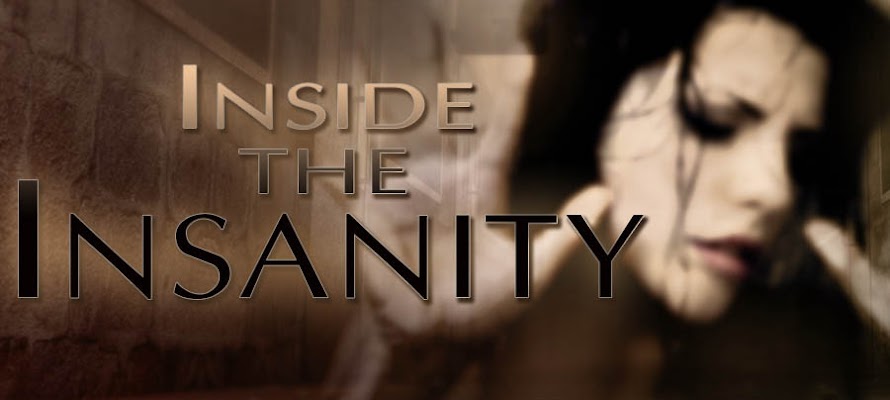
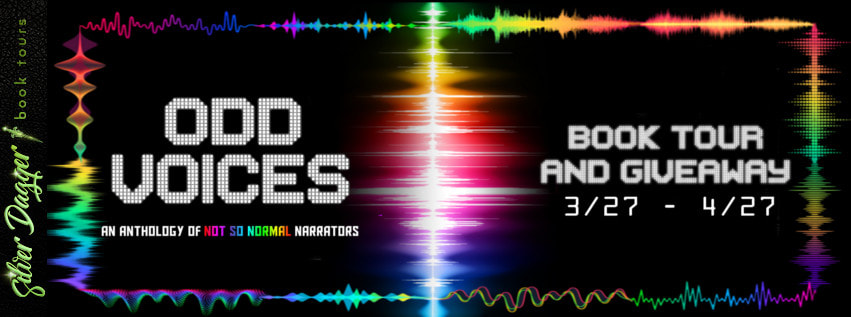
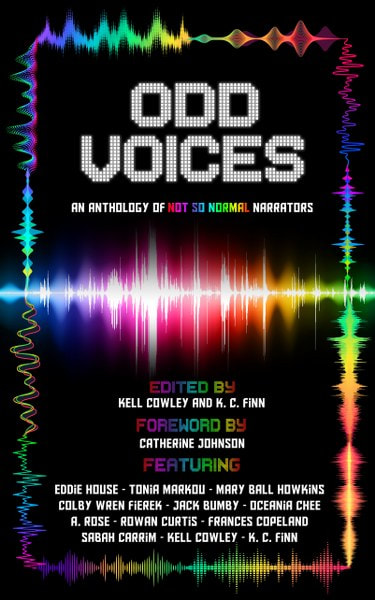

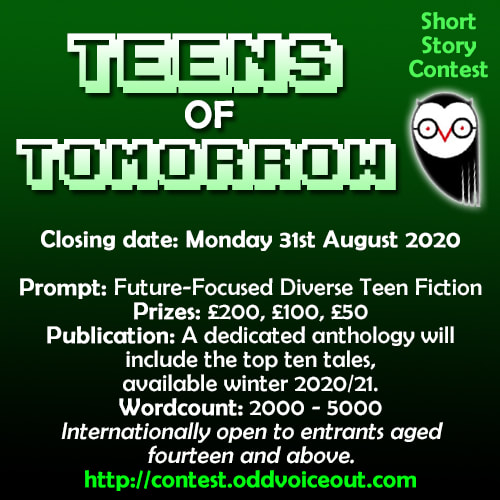


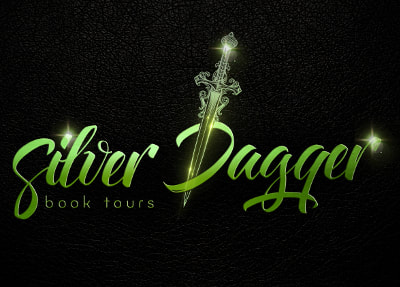
No comments:
Post a Comment